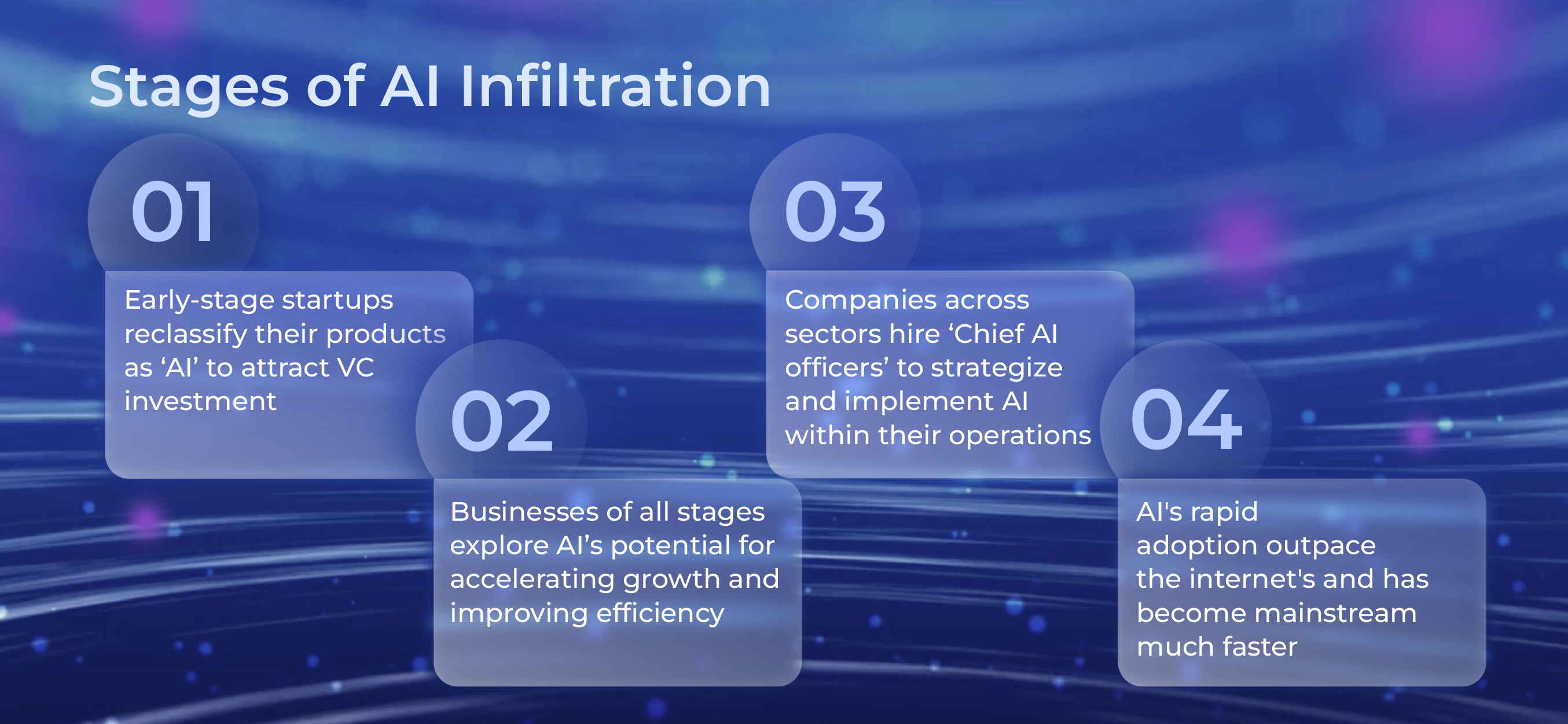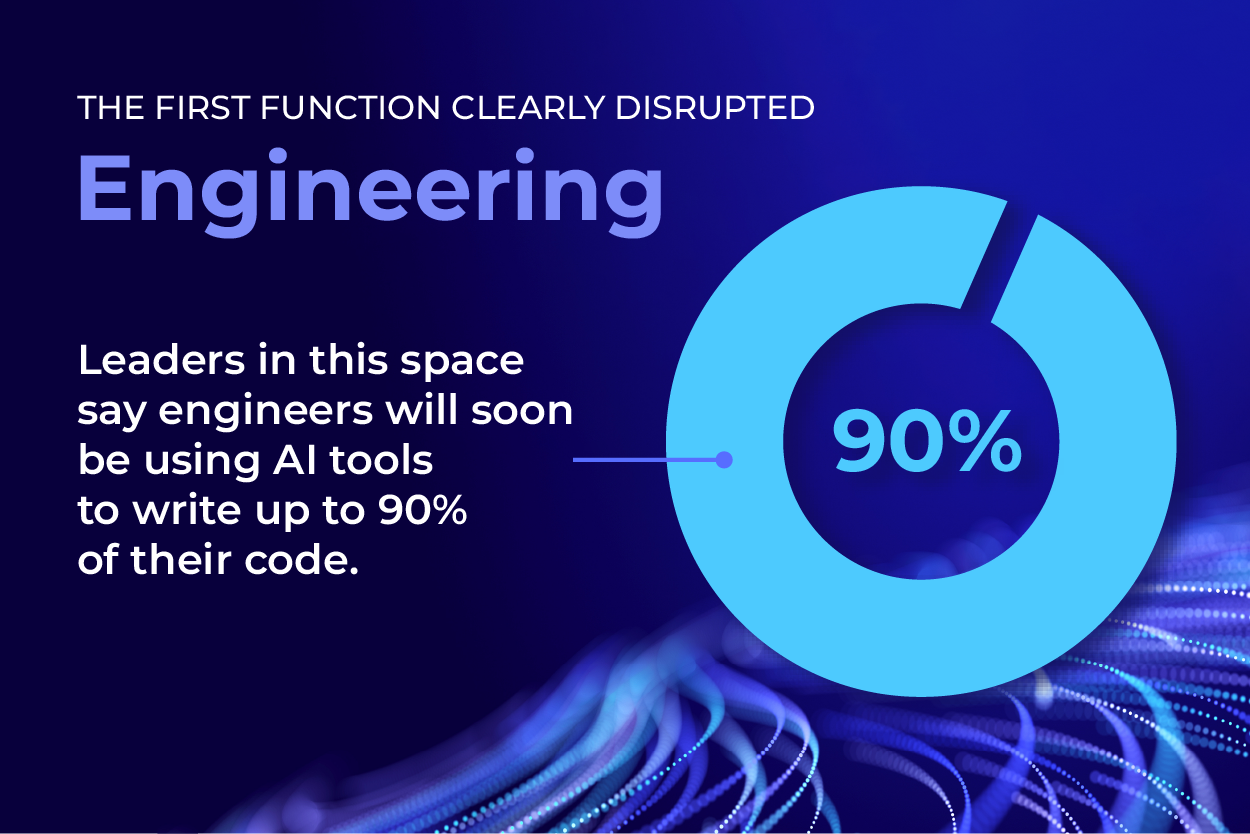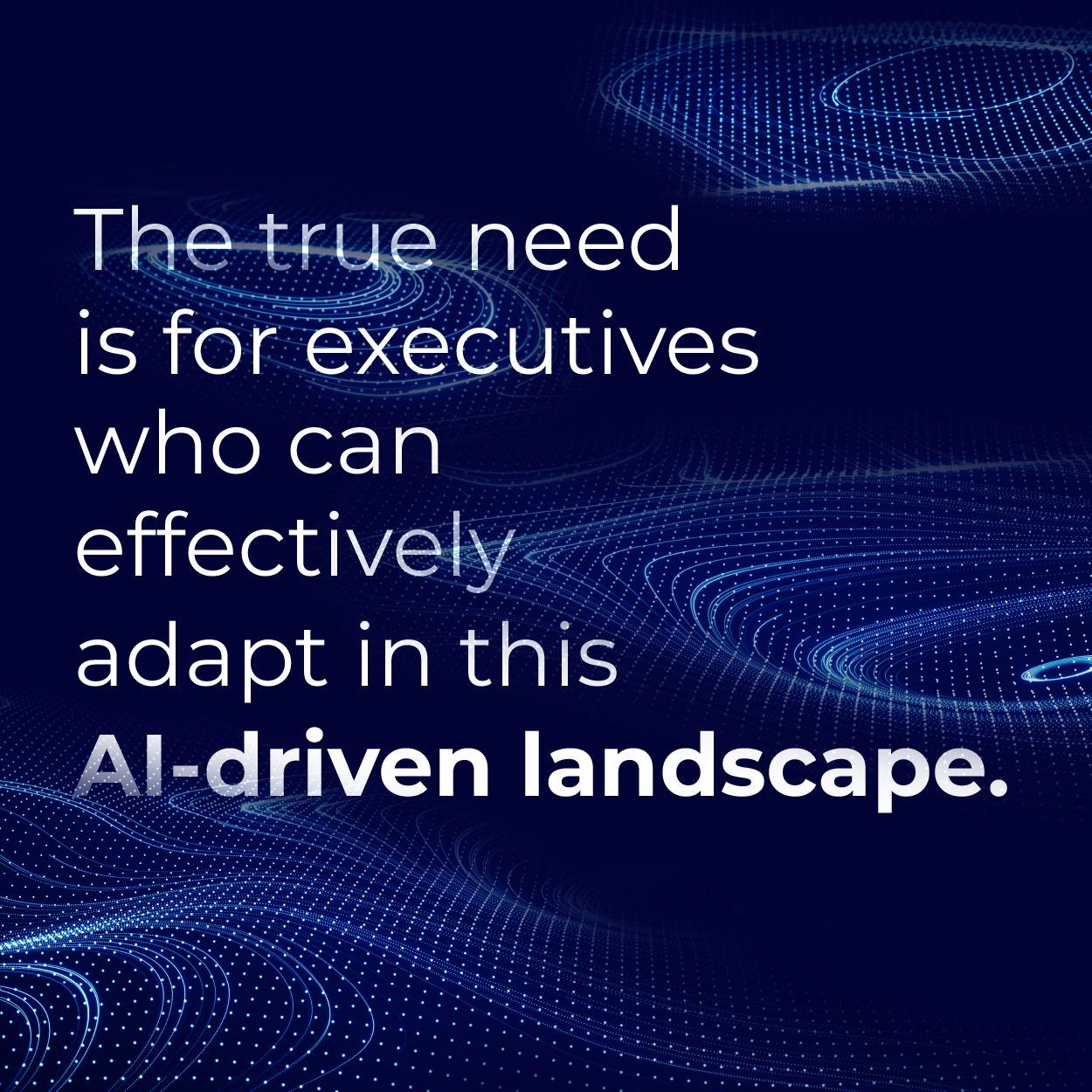WITH INSIGHTS FROM

Dan Miller
Managing Director, Head of the Venture Capital Practice
.

Shawn Thorne
Managing Director, Head of the Venture Capital Practice
.

Mark Bai
Managing Director, Head of the Artificial Intelligence and Product, Data & Technology Practices
“AI” is no longer a futuristic buzzword. Today, it’s prevalent in every aspect of business. We now have products, workflows, and business models in our hands that were once hard to even imagine, both automating and augmenting prior standards.
How did we get here?
AI largely impacted early-stage startups at first, driving a trend of reclassifying products as “AI” to attract the vast amount of venture capital flowing into the sector. Then, as the tech evolved, technology companies of all stages explored where and how to use AI to accelerate their growth or increase their efficiency. Next, more mature companies across all sectors started to find value in a ‘Chief AI Officer’ to strategize the integration of AI into their own workflows and business segments. Now, AI feels ubiquitous—it took decades for internet familiarity to go from a highlight on a resume to a footnote, and AI is poised to move through that same cycle much faster.

From our perspective, this fast AI integration is also changing leadership hiring across the business environment regardless of company maturity, the industry sector, or the type of role needing to be filled. Companies expect their leaders to have—at minimum—a foundational understanding of AI, despite the fact that the definition of AI fluency for executives is constantly evolving.
The top three talent trends we’re seeing:
- The death of the AI officer: The initial excitement around the ‘Chief AI Officer’ role has waned as companies realize that AI expertise needs to be integrated across the entire business.
- The rise of AI in every function: AI has become critical in every corner of an organization. Engineering was first, but sales, marketing, product development and others are seeing AI’s power and influence.
- Emphasis on ‘soft skills’: Companies are looking for skills like adaptability and creativity in a candidate’s strategic track record, with AI handling more technical details as the tech matures.

The Death of the AI Officer
A year ago, the ‘Chief AI Officer’ role was in high demand. This individual was vaguely tapped to bring the “magical” technology of AI into the different business units and product lines of a company that wasn’t otherwise primarily focused on AI. Perhaps the vague mandate was telling as it already looks like the role may fizzle out.

The reason, partly, is because it’s ineffective to have a single expert in a fast-moving technology lead its adoption in areas outside of their daily focus. With AI technologies being so new, the qualifications for these roles have also been broad. Someone with slightly more AI experience doesn’t necessarily have a significant advantage over the teams they’re guiding on adopting the technology. In many functions, it’s simply faster to learn the relevant AI automation tools than to master its existing workflows and best practices.
In the last 20 AI searches we’ve completed since 2024, only one has been a C-level position, with 12 VP/SVP level roles. The “Chief AI Officer” no longer exists because it’s now a basic qualification for any CIO/CISO/CDAO.

Rise of AI in Every Function
The initial ambiguity of how AI would be relevant in a non-AI business is now clearer. Almost every function we recruit for has seen AI become a required skill in some form.

The first function clearly disrupted—and still constantly changing today—was engineering. Engineers built and trained LLMs to be incredibly effective at writing code, and leaders in this space say they will soon be using AI tools to write up to 90% of their code. Our clients want candidates who can scale and deploy code faster than in any prior tech transformation, and unsurprisingly, every engineering leader is required to be proficient in these AI-centric tools. In an AI-everywhere world, technical roles also increasingly require knowledge of database structure and the ability to incorporate LLMs into products.
AI tools are now integrated into the daily workflows of all professionals, not just those in technical roles. For sales and other outbound positions, AI-powered business development representatives and lead generation tactics have become as essential as mastering previous SaaS tools like Salesforce. In marketing, AI search results are gradually displacing SEO as the main discovery method for a growing number of products. Soon, modern marketing leaders will need to understand AI surfaceability as much as they once understood Google page rankings.
As technology users gain proficiency in AI, products follow, and product leaders evolve into AI product leaders. Then, all functional leaders within a company will need expertise in relevant AI tools, a shift that may already be underway. Human Resources (HR) and Learning & Development (L&D) leaders will also need to have a good grasp on these changes across job descriptions to support training and evaluation in AI hiring processes.

Emphasis on “Soft Skills”
In our profession, “hard skills” refer to the technical qualifications necessary for a job. These are skills that can be measured objectively and are gained through education or practical experience. Languages are good examples, whether human (“speaks Spanish”) or computer (“knows JavaScript”). You have it or you don’t. The more subjective “soft skills” (“calm under pressure”) are judged along a gradient.

Hard skills are typically easier to evaluate than soft skills because of time constraints and limited interactions with executive candidates. However, with AI’s rapidly increasing capabilities, forward-thinking leaders are quickly realizing that all current hard skills may eventually be automated.
Many of our clients now prioritize soft skills over specific hard skills. The true need is for executives who can effectively adapt to and learn in this evolving landscape. Businesses want leaders who have tackled similar challenges in new areas—like using new technologies, piloting innovative business models, or launching startups from scratch—and have the intuition to avoid dedicating time and effort into projects that might soon become standard features from major AI players like OpenAI and Google.
True’s current AI search strategies emphasize intelligence, rapid learning, and creativity, and our clients are increasingly looking for insights into candidates’ thought processes and work styles over what they’ve done in the past. We integrate True Advance—our fast and efficient assessment process—into all our searches as a complementary onboarding coach for every placement as we embrace this changing business landscape.
Conclusion
AI is one of the fastest moving technology transformations we have ever seen, and its impact is being felt across every industry and function. Leaders at the companies we work with have realized that adaptability and the desire to master new technologies are the critical characteristics for successful executives over the next few years, while AI transforms business operations on a month-to-month or day-to-day pace. Whether used for automating workflows, creating new ones, or opening the door for previously impossible products, AI is certainly forcing a constant reevaluation of skillsets across the C-level.
For media inquiries, contact Jillian Ruggieri